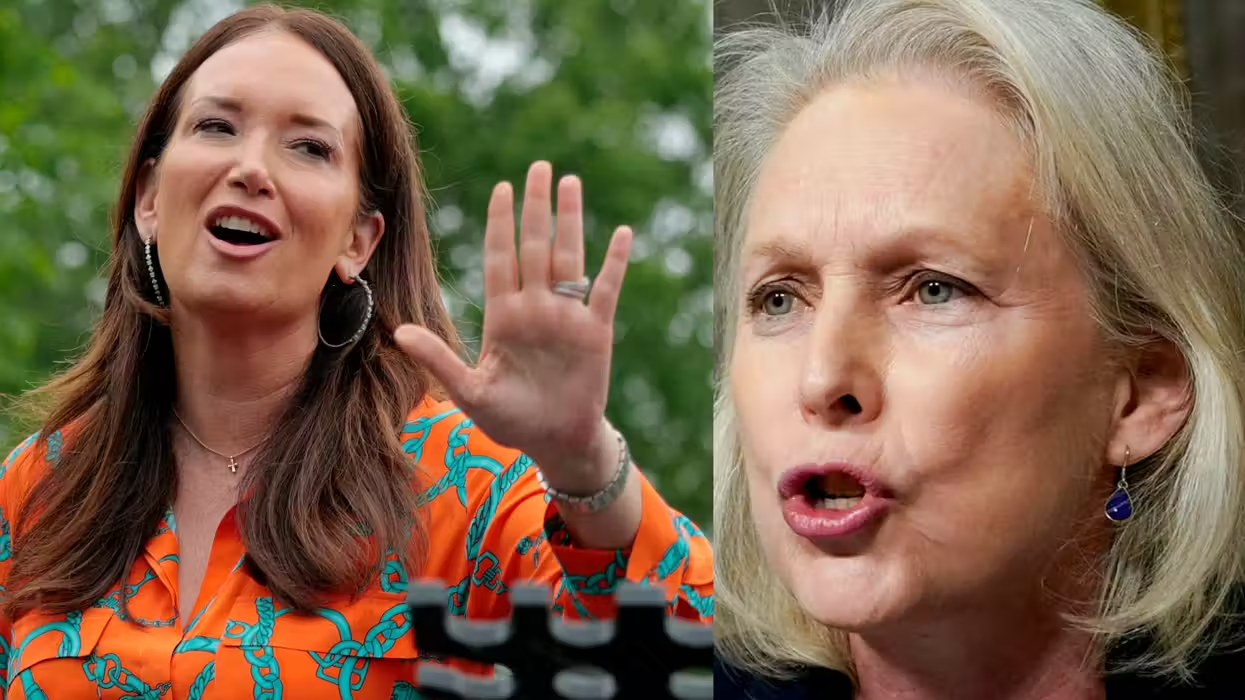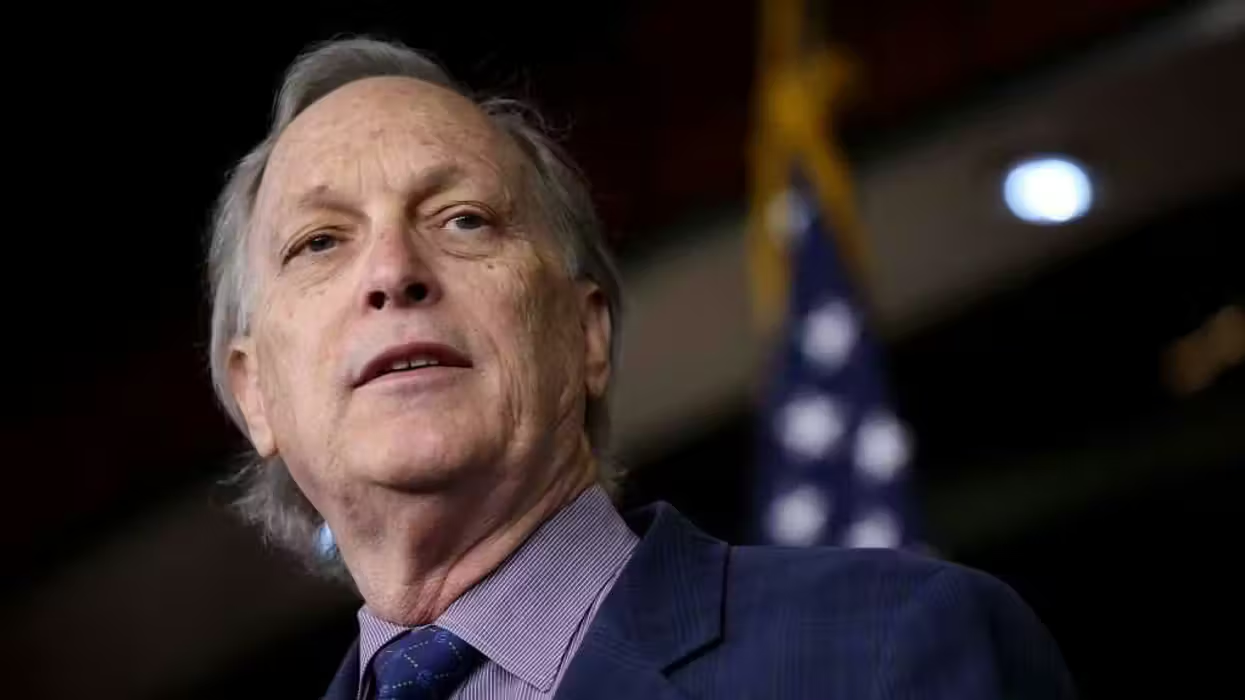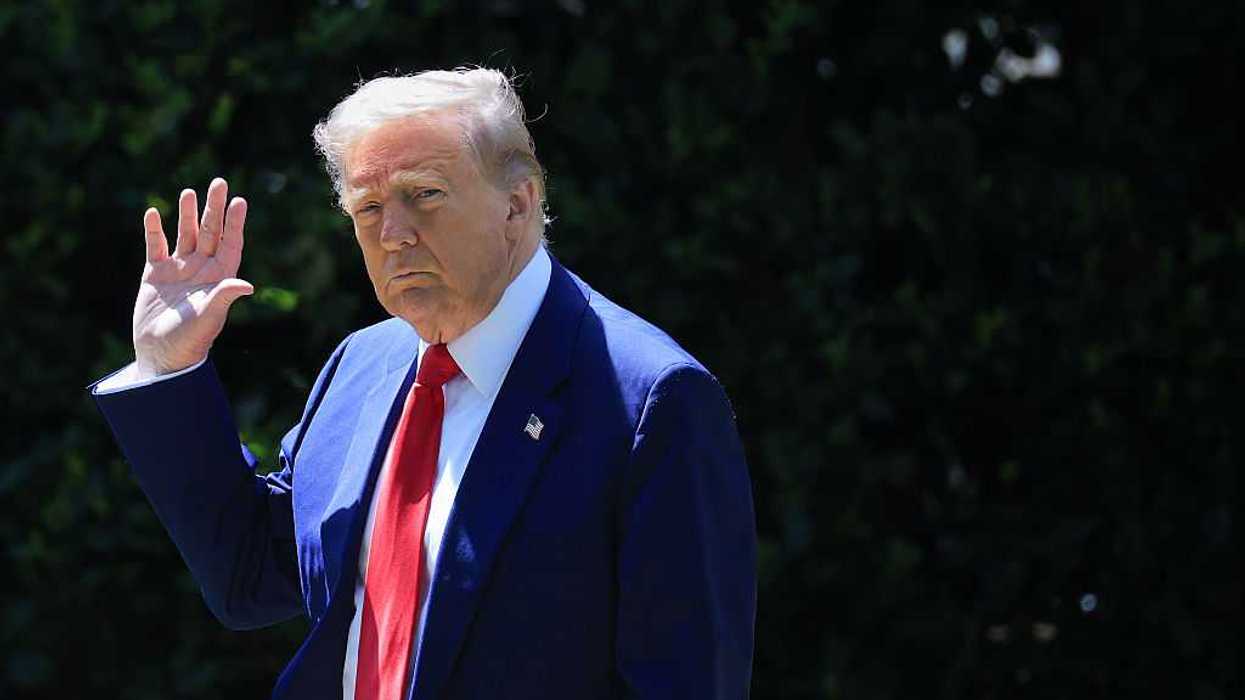JERUSALEM (TheBlaze/AP) -- Earlier this month, electric car maker CODA Holdings Inc., filed for bankruptcy, becoming at least the third in little more than a year to do so. Now, Israel's trailblazing electric car company Better Place announced that it is shutting down, less than six years after unveiling an ambitious plan that promised to revolutionize the auto industry by reducing the world's dependency on oil.
Better Place was perhaps Israel's best known clean-tech company and a leading symbol of its "startup" nation status. Israel, along with Denmark, was the company's test market for developing nationwide networks of charging and battery-swapping stations that it hoped would eventually spread globally. But the company experienced repeated delays in getting off the ground and experienced weak demand for its cars after burning through millions of dollars.
 n this March 23, 2011 file photo, an electric car is connected to a charging station operated by Israeli-American company "Better Place", in Kiryat Ekron, central Israel. Better Place, an Israeli-American company says it has secured an additional $200 million in financing to create the world's first network of charging stations for electric cars. The company announced that filed for liquidation May 26, 2013. (Photo: AP/Sebastian Scheiner, File)
n this March 23, 2011 file photo, an electric car is connected to a charging station operated by Israeli-American company "Better Place", in Kiryat Ekron, central Israel. Better Place, an Israeli-American company says it has secured an additional $200 million in financing to create the world's first network of charging stations for electric cars. The company announced that filed for liquidation May 26, 2013. (Photo: AP/Sebastian Scheiner, File)
The announcement Sunday that the company was filing for liquidation comes less than eight months after company founder Shai Agassi was forced out. The project won the support of Israeli President Shimon Peres, received generous financial incentives from the Israeli government and made Agassi a dynamic celebrity CEO.
The company's vision of drastically reducing oil dependence, cutting carbon emissions and blazing a trail for more environmentally friendly means of transportation won it worldwide praise and high-profile endorsements from people such as former President Bill Clinton. But it also faced skepticism from industry insiders who warned of technical pitfalls, such as limited battery range.
In a written statement, the company's Board of Directors said the venture's intentions were still valid but the execution had faults along the way.
"This is a very sad day for all of us. We stand by the original vision as formulated by Shai Agassi of creating a green alternative that would lessen our dependence on highly polluting transportation technologies," the company said. "Unfortunately, the path to realizing that vision was difficult, complex and littered with obstacles, not all of which we were able to overcome."
When reached by The Associated Press, Agassi refused comment Sunday.
 In this Wednesday, March 23, 2011 file photo, Israeli-American entrepreneur Shai Agassi, founder and CEO of "Better Place", a project developing electric vehicles and a network of charging points, stands at an electric charging station in Kiryat Ekron, central Israel. Israeli electric car company Better Place is replacing its founder and chief executive, Shai Agassi. In a statement Tuesday, Oct. 2, 2012, the company said it had achieved its goals under Agassi and had reached a "natural point in the company's evolution to realign." (Photo: AP/Sebastian Scheiner, File)
In this Wednesday, March 23, 2011 file photo, Israeli-American entrepreneur Shai Agassi, founder and CEO of "Better Place", a project developing electric vehicles and a network of charging points, stands at an electric charging station in Kiryat Ekron, central Israel. Israeli electric car company Better Place is replacing its founder and chief executive, Shai Agassi. In a statement Tuesday, Oct. 2, 2012, the company said it had achieved its goals under Agassi and had reached a "natural point in the company's evolution to realign." (Photo: AP/Sebastian Scheiner, File)
Better Place raised some $850 million from investors like General Electric Co. and HSBC Holdings PLC and the European Investment Bank. Israel Corp., controlled by billionaire Idan Ofer, was the largest shareholder in the venture.
In Israel and Denmark, the networks are almost complete, while the company also has operations in Australia, the Netherlands, China, Hawaii and Japan.
Israel was a particularly ideal laboratory, thanks to high fuel prices, a supportive government and its dense population centers. In Israel, 90 percent of car owners drive less than 45 miles, or about 70 kilometers, per day and all major urban centers are less than 100 miles apart, making the use of battery operated cars more feasible than in countries with longer average commutes.
 A sign with petrol prices is reflected in a window of a car connected to a battery switch station of "Better Place", a project developing electric vehicles and a network of charging points, in Kiryat Ekron, central Israel, Wednesday, March 23 , 2011. Electric car company Better Place has unveiled its first battery-changing station. It's a major milestone in the company's planned rollout of the world's first nationwide battery-charging grid. (Photo: AP/Sebastian Scheiner)
A sign with petrol prices is reflected in a window of a car connected to a battery switch station of "Better Place", a project developing electric vehicles and a network of charging points, in Kiryat Ekron, central Israel, Wednesday, March 23 , 2011. Electric car company Better Place has unveiled its first battery-changing station. It's a major milestone in the company's planned rollout of the world's first nationwide battery-charging grid. (Photo: AP/Sebastian Scheiner)
For people making longer trips, the country was dotted with several dozen mechanized battery-swapping stations, where a new battery could be placed in the vehicle in just a few minutes. Green cars were also particularly attractive to Israel, which hopes to weaken the political clout of its oil-rich enemies.
Here's a feature about the company a little more than a year ago by ABC News:
Fewer than 1,000 of Better Place's cars made it on to the road and the company's distinctive charging stations remained largely empty. French automaker Renault has sold a sedan, the Fluence, which was customized to use the stations and was priced in Israel at roughly $32,000, on par with other sedans.
In its motion to court Sunday, Better Place said it was seeking the appointment of a temporary liquidator. In light of its failure to raise additional funds, the company asked for the court's assistance in protecting the rights of its employees, customers and creditors.
"From the start, Better Place was a breakthrough for the infrastructure of the electric car industry and successfully completed the development of its technology and infrastructure. Israel was the first place in which an electrical car could travel without limit," said CEO Dan Cohen. "Unfortunately, after a year's commercial operation, it was clear to us that despite many satisfied customers, the wider public take up would not be sufficient and that the support from the car producers was not forthcoming."
[related]

 n this March 23, 2011 file photo, an electric car is connected to a charging station operated by Israeli-American company "Better Place", in Kiryat Ekron, central Israel. Better Place, an Israeli-American company says it has secured an additional $200 million in financing to create the world's first network of charging stations for
n this March 23, 2011 file photo, an electric car is connected to a charging station operated by Israeli-American company "Better Place", in Kiryat Ekron, central Israel. Better Place, an Israeli-American company says it has secured an additional $200 million in financing to create the world's first network of charging stations for 





